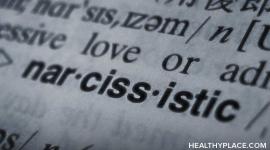The Anomaly of Abuse
Why do people engage in partner abuse and domestic violence? Theories behind causes of abuse and why abusers abuse.
Important Comment
Most abusers are men. Still, some are women. We use the masculine and feminine adjectives and pronouns ('he", his", "him", "she", her") to designate both sexes: male and female as the case may be.
Is abuse anomalous - or an inevitable part of human nature? If the former - is it the outcome of flawed genetics, nurture (environment and upbringing) - or both? Can it be "cured" - or merely modified, regulated, and accommodated? There are three groups of theories - three schools - regarding abusers and their conduct.
I. Abuse as an Emergent Phenomenon
The precipitous drop in intimate partner abuse in the last decade (especially in the West) seems to imply that abusive behavior is emergent and that its frequency fluctuates under given circumstances. It seems to be embedded in social and cultural contexts and to be a learned or acquired behavior. People who grew up in an atmosphere of domestic violence, for instance, tend to perpetuate and propagate it by abusing their own spouses and family members.
Social stresses and anomy and their psychological manifestations foster domestic violence and child abuse. War or civil strife, unemployment, social isolation, single parenthood, prolonged or chronic sickness, unsustainably large family, poverty, persistent hunger, marital discord, a new baby, a dying parent, an invalid to be cared for, death of one's nearest and dearest, incarceration, infidelity, substance abuse - have all proven to be contributing factors.
II. Hard-Wired Abuse
Abuse cuts across countries, continents, and disparate societies and cultures. It is common among the rich and the poor, the highly educated and the less so, people of all races and creeds. It is a universal phenomenon - and always has been, throughout the ages.
More than half of all abusers do not come from abusive or dysfunctional households where they could have picked up this offensive comportment. Rather, it seems to "run in their blood". Additionally, abuse is often associated with mental illness, now fashionably thought to be biological-medical in nature.
Hence the hypothesis that abusive ways are not learned - but hereditary. There must be a complex of genes which controls and regulates abuse, goes the current thinking. Turning them off may well end the maltreatment.
III. Abuse as a Strategy
Some scholars postulate that all modes of behavior - abuse included - are results-orientated. The abuser seeks to control and manipulate his victims and develops strategies aimed at securing these results - see "What is Abuse" for details.
Abuse is, therefore, an adaptive and functional behavior. Hence the difficulty encountered by both the offender and society in trying to modify and contain his odious demeanor.
Yet, studying the very roots of abuse - social-cultural, genetic-psychological, and as a survival strategy - teaches us how to effectively cope with its perpetrators.
This is the subject of the next article.
|
|
APA Reference
Vaknin, S.
(2009, October 1). The Anomaly of Abuse, HealthyPlace. Retrieved
on 2026, January 14 from https://www.healthyplace.com/personality-disorders/malignant-self-love/anomaly-of-abuse
